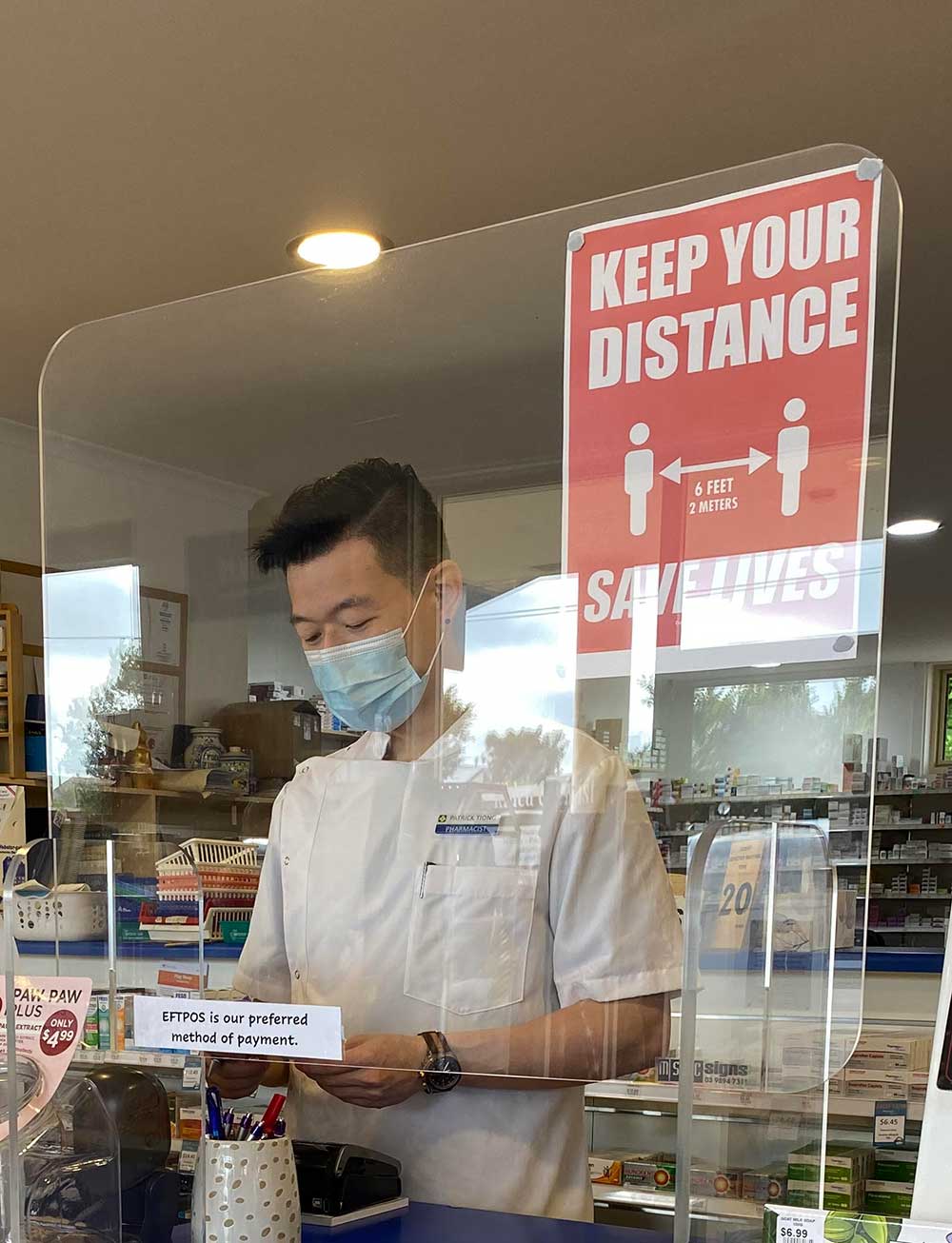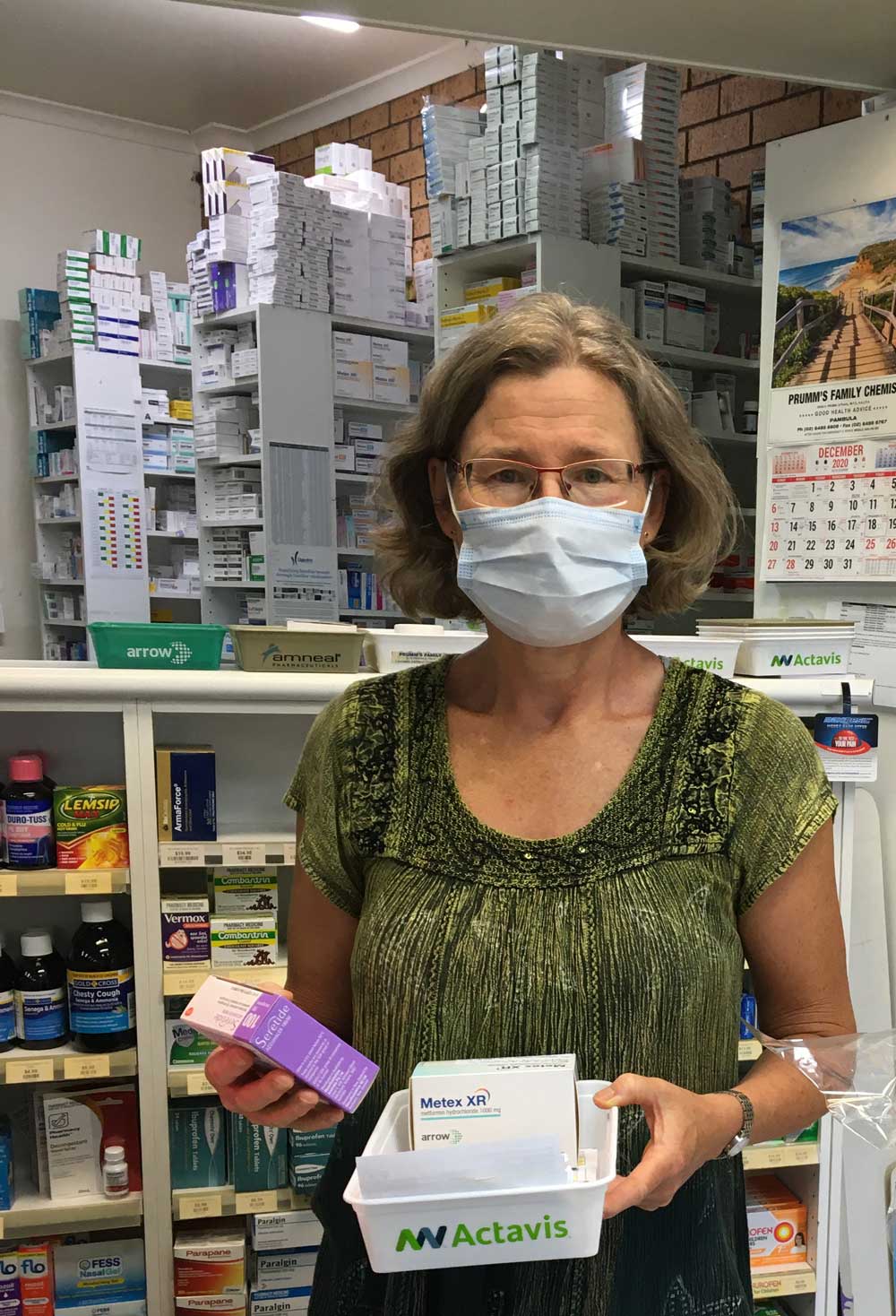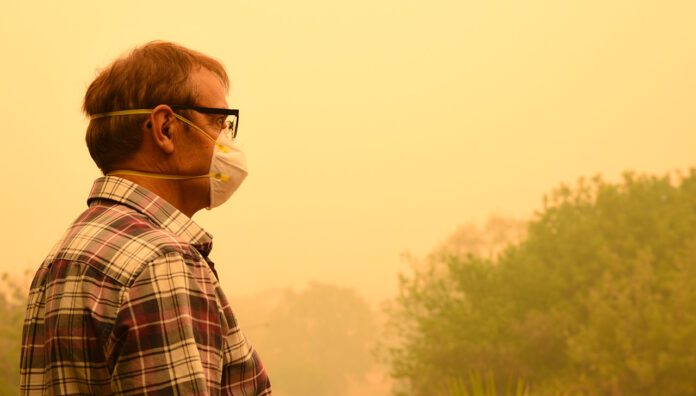This time last year, fires were raging across the country at warp speed. Before fire season strikes again, pharmacists would benefit from having some preventative measures in place.
The Commonwealth Department of Health recently released two bushfire fact sheets to help the community stay safe and minimise the risk to health from bushfire smoke.
While pharmacists can direct customers to this advice, particularly those who are most vulnerable and have respiratory conditions, they would also be wise to assess their preparedness so they can best service the community should disaster hit.
Australian Pharmacist spoke with two pharmacists who lived through last season’s bushfires along with an asthma expert to examine the areas that should be focused on.
Key points
|
Supplies and services

Earlier this year, Patrick Tiong MPS, pharmacist-in-charge at Kangaroo Island’s Kildea Pharmacy, found himself at the centre of the island’s largest bushfire in recorded history. In light of low stock levels at the height of the crisis, Mr Tiong has assessed his inventory of supplies and crucial medicines to prepare for this season.
‘We’ve ensured we have sufficient numbers of common inhalers for respiratory conditions as well as some of the crucial medicines and supplies such as Ventolin for asthma puffers, short-acting beta agonists, spacers, face masks – even eye drops,’ he told Australian Pharmacist.
However, while it’s important to have adequate supplies, balance is key.
Jenny Brichacek MPS from Prumms Pharmacy in the New South Wales south coast town of Pambula, where supplies of asthma inhalers were exhausted at the start of the year, urged caution around stockpiling.
‘Stockpiling is what caused all of our supply problems last season,’ she told AP.
‘It also has a flow-on effect in the community. When customers see pharmacies panicking and stocking up, they tend to do the same.’
While Ms Brichacek has a month’s worth of stock for the majority of her pharmacy’s lines, as she has throughout the year, she has a heightened awareness of what may come.
‘You tend to know that a bushfire is approaching your area, so in the weeks leading up to that you could think ahead and ensure you have extra supplies of lines you wouldn’t normally keep many of – so instead of one on your shelf, you may have two or three.’
Keeping an eye on essential medicines and supplies will also stave off short supply.

Ms Brichacek was forced to restrict the quantities of some over-the-counter products such as inhalers and Ventolin when it became apparent that people without respiratory conditions were purchasing them.
‘I’d advise pharmacists to be vigilant when people attempt to purchase these products,’ she said.
‘Ask them questions such as: are you asthmatic, are you on an asthma plan, are you on a preventer, as well as proof of their history.’
Simplifying the access to prescription medicines will also ensure smoother service during natural disasters. To facilitate this, Mr Tiong’s pharmacy recently rolled out electronic prescribing.
‘This system will provide a convenient alternative for customers this season so they won’t have to make any unnecessary appointments to get their prescriptions,’ he said.
Caring for people with asthma
Professor Sinthia Bosnic-Anticevich MPS, Research Leader of the Quality Use of Respiratory Medicines Group at the Woolcock Institute, University of Sydney, said pharmacists have an important role to play in assisting their customers with asthma.

‘Last season really highlighted the importance of people not only having well-controlled asthma, but being able to recognise when they are experiencing a flare-up and what to do when that happens,’ Professor Bosnic-Anticevich told AP.
‘Pharmacists should be working with their customers now to ensure they have good symptom control to get them on the right track before bushfire season.’
This means making sure they have a preventer and are using it appropriately, Professor Bosnic-Anticevich said, and that they have good inhaler technique and an action plan in place should their asthma get worse.
While pharmacists should advise people with asthma to avoid outdoor exposure when they can and keep all doors and windows closed when particulate levels are high, Professor Bosnic-Anticevich said a P2 mask should be considered if a person can’t avoid exposure. This applies to patients both within and outside disaster zones.
Lastly, Professor Bosnic-Anticevich suggested pharmacists learn asthma first aid to assist in an emergency.
‘The National Asthma Council has a great first aid asthma chart, which can help take pharmacists through the steps of how to initiate these protocols and when to call emergency services,’ she said.
Strengthen community relationships
In times of natural disaster, Mr Tiong said it’s crucial that the local community rallies to support each other.
‘As pharmacists, we have the obligation to act in the community’s best interests and make sure there’s a continuity of supply of care and medicines,’ he said.
Mr Tiong said it’s important to foster good relationships with the community’s local hospitals and GPs, who can help pharmacists keep an eye on some of the critical services and supplies they need to provide.
Reassuring patients that you’re there to provide the service that they need is also important, Ms Brichacek said.
‘Calmly let them know that we’re here, we’re going to be open, we’ve got adequate stock, and don’t get drawn into the mass panic that can happen,’ she said.



 Dr Peter Tenni[/caption]
Dr Peter Tenni[/caption]
 How should we deprescribe gabapentinoids, according to the Maudsley Deprescribing Guidelines[/caption]
How should we deprescribe gabapentinoids, according to the Maudsley Deprescribing Guidelines[/caption]



 Pharmacists have always prescribed, but they have the potential to prescribe much more
Pharmacists have always prescribed, but they have the potential to prescribe much more





